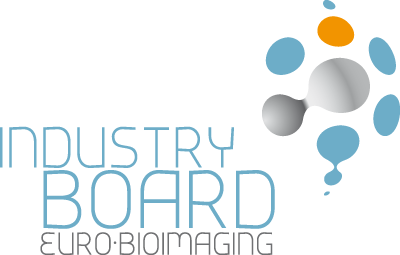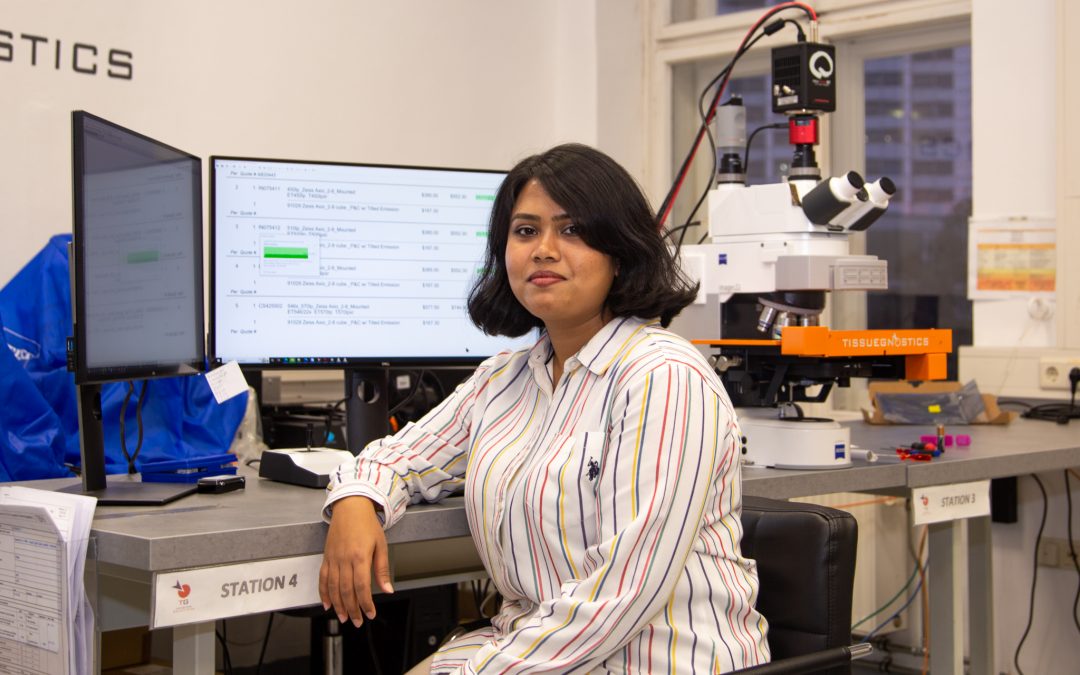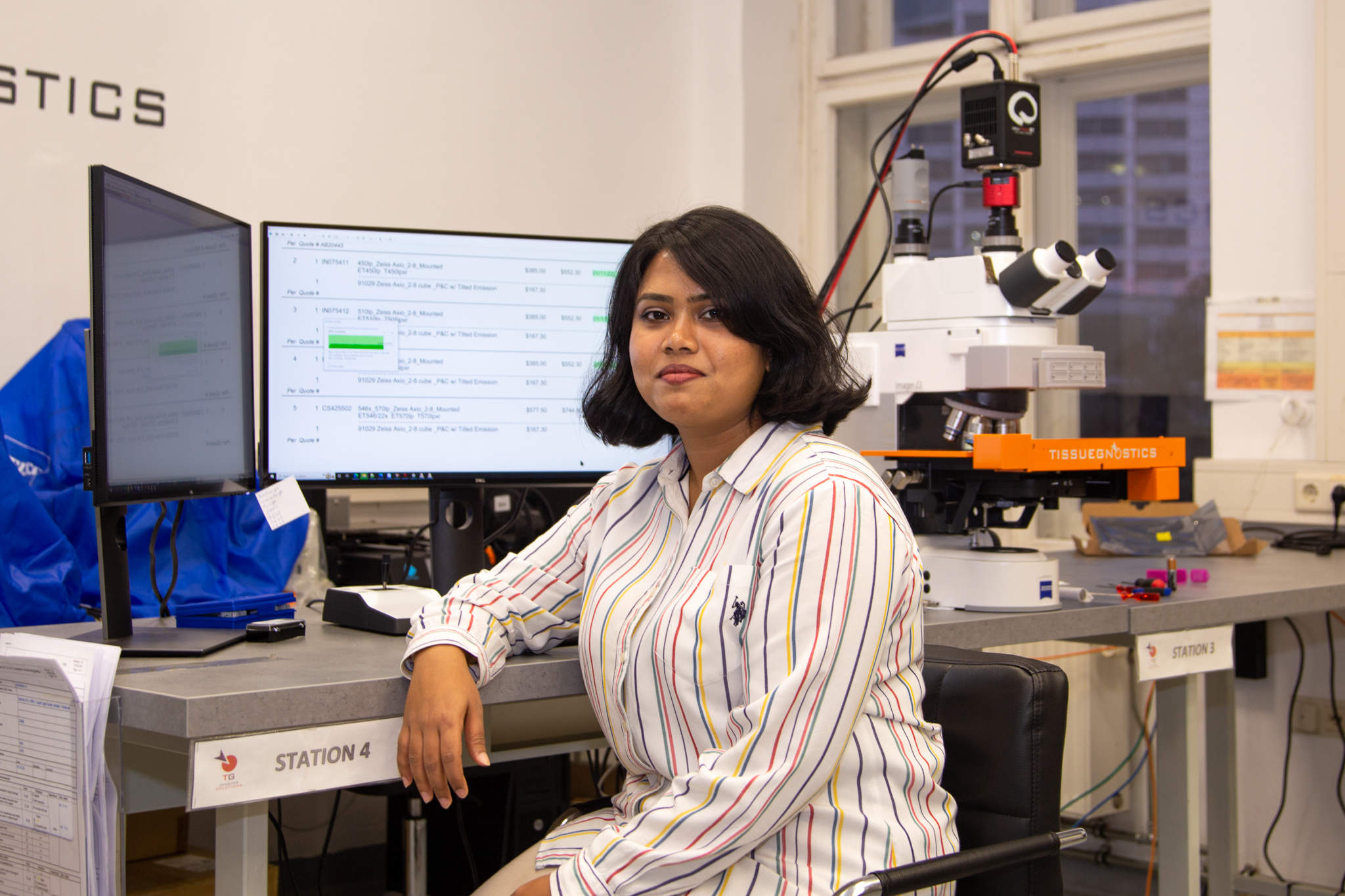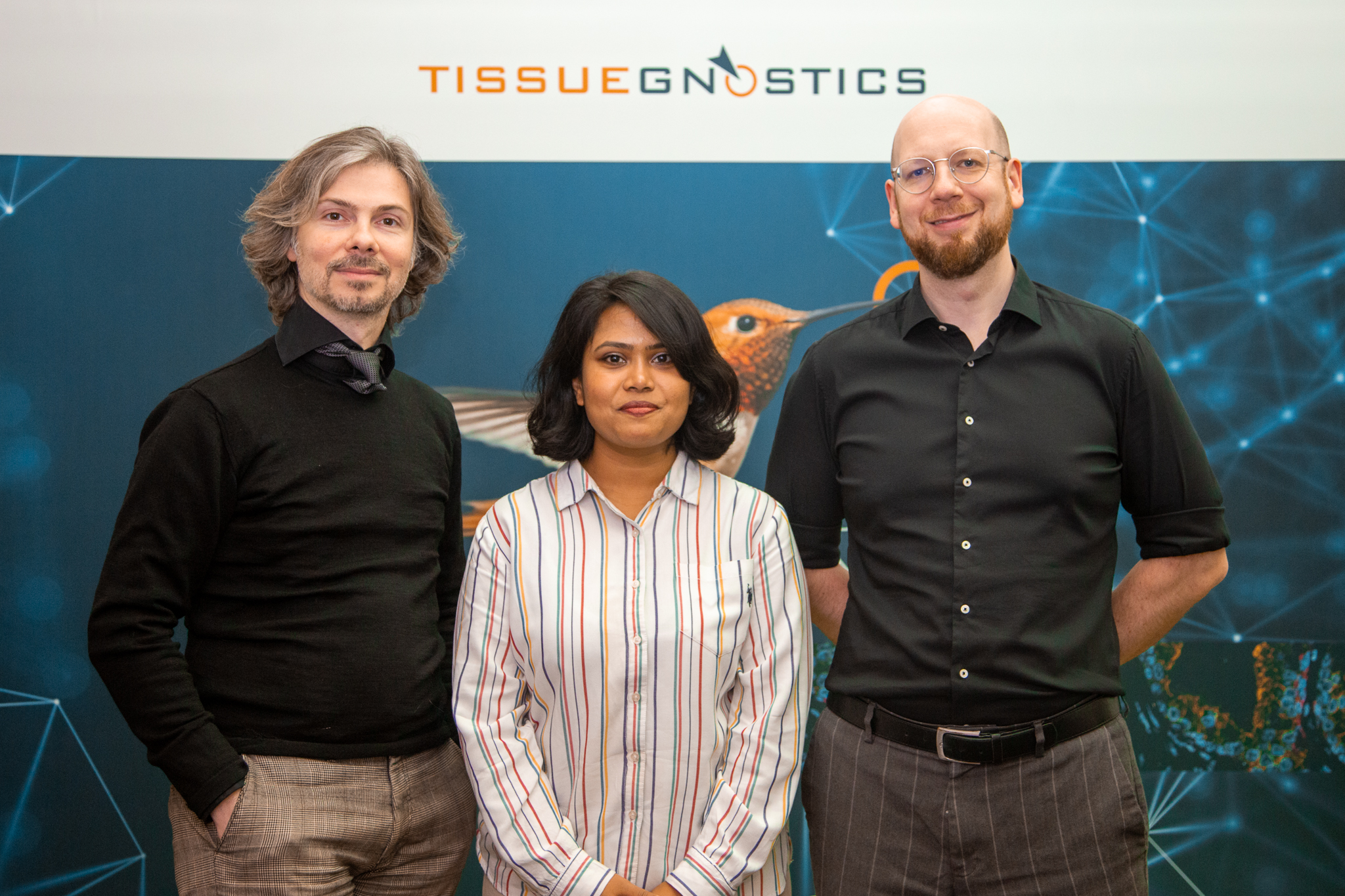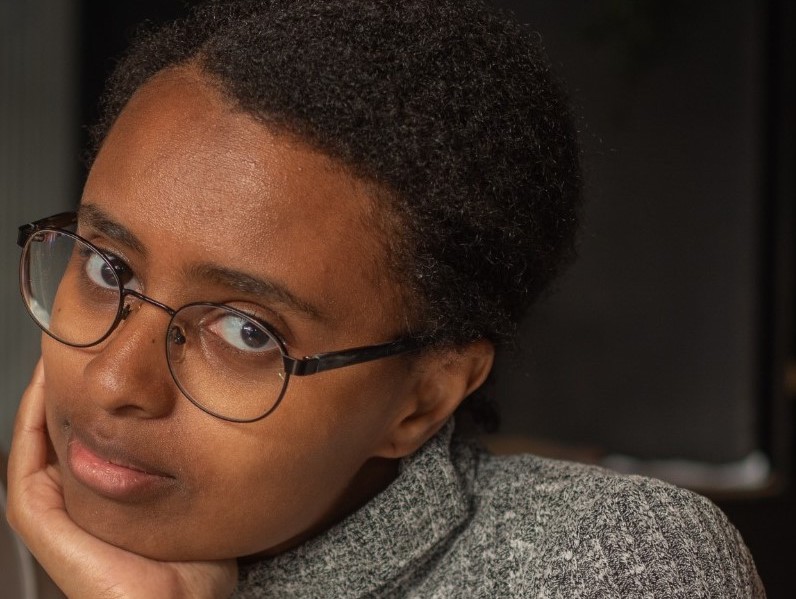
Choosing a career path for young imaging scientists
What better way to explore possible career paths for future imaging scientists than with an industry internship? Thanks to the Euro-BioImaging Industry Board pilot internship program, started in 2021, Master’s students in Biomedical Imaging at Åbo Akademi University and University of Turku, Finland, can apply for an internship with one of two Euro-BioImaging Industry Board partners, TissueGnostics and ZEISS. We spoke with Ada Pajari, one of the first Master’s students to benefit from this program, to learn more how her internship at ZEISS helped her make a career choice. And we also got insight from Herbert Schaden, ZEISS, on how the pilot program helps his company recruit curious, motivated students while fulfilling its culture of diversity.
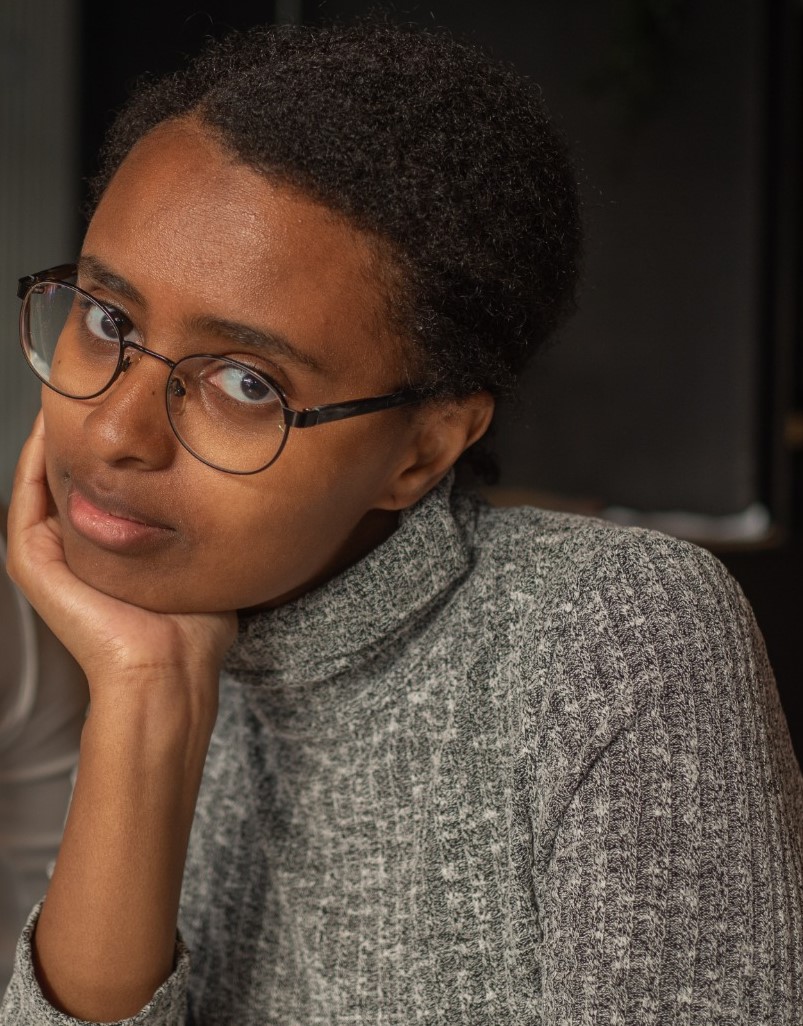
Ada Pajari is conducting an industry internship at ZEISS in Jena.
ZEISS is an internationally leading technology enterprise operating in the fields of optics and optoelectronics. ZEISS Research Microscopy Solutions is the world’s only one-stop manufacturer of light, electron, X-ray and ion microscope systems and offers solutions for correlative microscopy.
Ada was already familiar with ZEISS, as she had studied in Jena as an exchange student. “ZEISS is quite interwoven with the science that is done at the university there,” Ada explains. “I saw this as a nice opportunity to come back to Jena, and I felt it would be important for my career to do an internship in a company. After all, I already did an academic internship – and it’s important to experience both sides.”
A unique experience in Jena
Ada is working at the Advanced Development and Research department at ZEISS, where her duties include preparing cell samples and performing live cell imaging. She has a supervisor on the biology side, and another supervisor that sets up the microscopes. She also annotates the images she gets back as her work contributes to machine learning algorithms. For the most part, she is quite independent, since she already knew how to do many of the techniques she has implemented at ZEISS.
“It’s a nice balance between the wet lab and office work,” explains Ada. “And I’ve learned a lot. I participate in the weekly meetings for everyone at the Advanced Development and Research department, so I have an overview to what everyone is working on. I also got to tour the full ZEISS facility.”
“There’s a good team spirit in the office. Everyone is always there for you if you have problems, there’s a very nice and open communication amongst colleagues,” continues Ada. In addition, during her internship, ZEISS won the Deutsche Zukunftspreis for their Lattice Lightsheet 7 microscope. She was invited to participate in the celebrations and even meet the team that developed the microscope.
So, it has been very exciting professionally, but also on a personal level, the internship really helped things to click for Ada.
“This internship has happened at a crucial point in my studies, between my Master’s thesis and deciding what I want to do professionally. I now have a better grasp and know I want to focus on the research side of things. Being at ZEISS really helped me make that decision,” Ada concludes.
What motivated ZEISS to collaborate with Euro-BioImaging
“Diversity is really important for ZEISS, so being part of an international internship programme is key,” explains Herbert Schaden, who as EBIB Vice Chair was convinced very early on to join the internship programme.
“At ZEISS, we really want to be connected with young, talented people from around the globe. We are looking for motivated and curious candidates who like to work in a team. All of our internship projects are embedded into an overarching development project, so it can be a very valuable experience for interns and us alike,” explains Herbert.
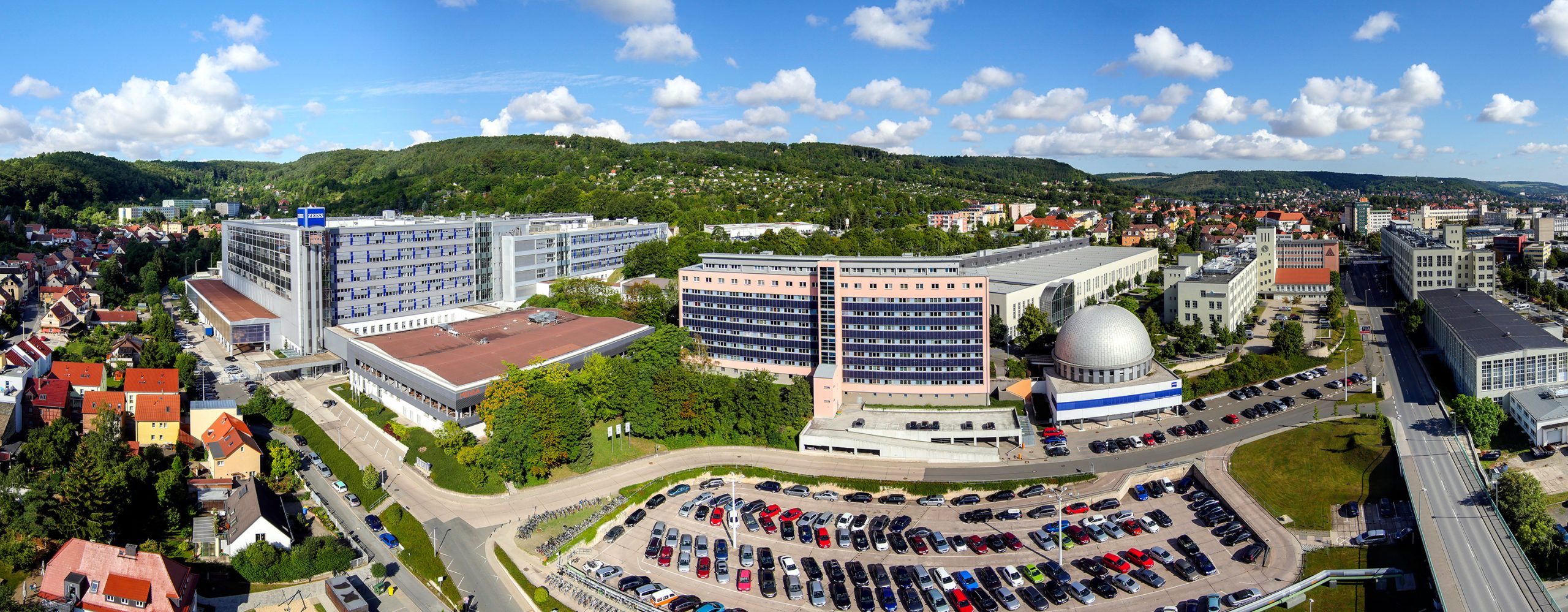
ZEISS site in South Jena.
The Advanced Development and Research Group, where Ada did her internship, is within ZEISS’ Microscopy group, and has a lot of integration with science and newest technologies. “This is a really great group to work for,” says Herbert. “They are testing the ideas, developing the prototypes, doing the market research. They also evaluate technologies to see if they are interesting to develop further. And they do it on both the hardware and the software side,” explains Herbert.
Being part of the community
“We are very happy to collaborate in the internship program. It’s wonderful to interact with interested, motivated students early in their career. And it’s important to show students that private companies also need researchers.”
“Strong collaboration with the imaging community is really important for us. And training and education are really important pillars of this interaction,” concludes Herbert Schaden.
More information
Find out more about industry internship opportunities with Euro-BioImaging here.
